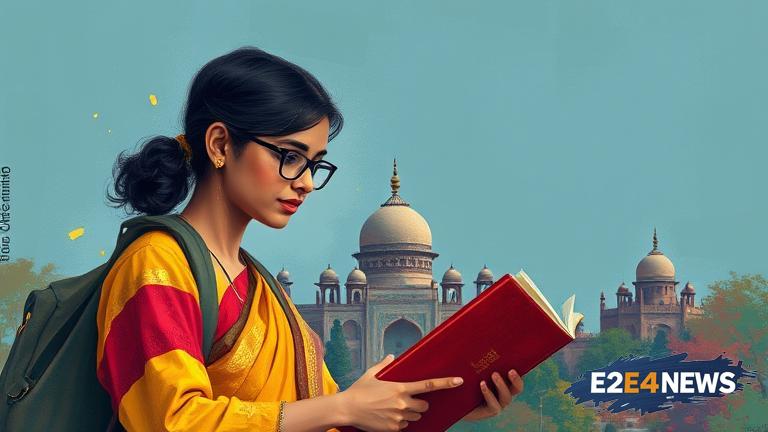Ocean Vuong, a renowned author, has expressed his concerns about the difficulties faced by Indian students in securing visas to study abroad. Despite these challenges, Vuong believes that Indian students will produce some of the most exciting literature in the coming years. He attributes this to the unique cultural perspective and experiences that Indian students bring to the table. Vuong’s own experiences as a Vietnamese-American writer have given him insight into the struggles faced by international students. He notes that the current visa landscape is particularly tough for Indian students, with many facing rejection or lengthy delays. However, Vuong remains optimistic about the potential of Indian students to make significant contributions to the literary world. He cites the example of Indian authors such as Arundhati Roy and Salman Rushdie, who have made a profound impact on global literature. Vuong also highlights the importance of diversity in literature, noting that Indian students bring a fresh perspective to the table. He believes that their experiences and cultural backgrounds will enrich the literary landscape and provide new insights into the human condition. Furthermore, Vuong notes that the struggles faced by Indian students will actually fuel their creativity and drive them to produce innovative and exciting literature. He also emphasizes the need for greater support and understanding for international students, who often face significant challenges in navigating unfamiliar cultures and bureaucracies. Vuong’s comments come at a time when there is growing concern about the impact of visa restrictions on international students. Many universities and literary organizations are calling for greater flexibility and support for students from diverse backgrounds. In conclusion, while Indian students may face significant challenges in obtaining visas, their potential to produce exciting and innovative literature is vast. As Vuong notes, the most exciting literature often comes from the margins, and Indian students are poised to make a significant impact on the literary world. With their unique cultural perspectives and experiences, they will bring a fresh voice to the table, one that will enrich and diversify the literary landscape. Ultimately, Vuong’s comments serve as a reminder of the importance of supporting and nurturing talent from diverse backgrounds, and of the need to create a more inclusive and welcoming environment for international students.
